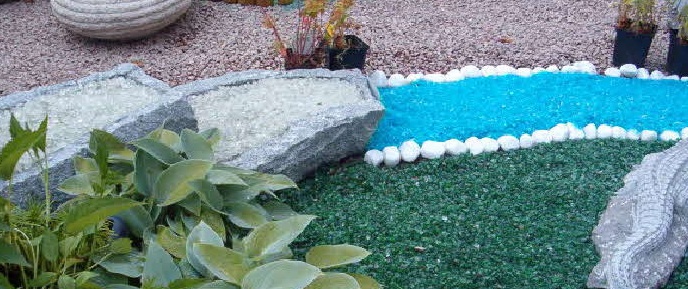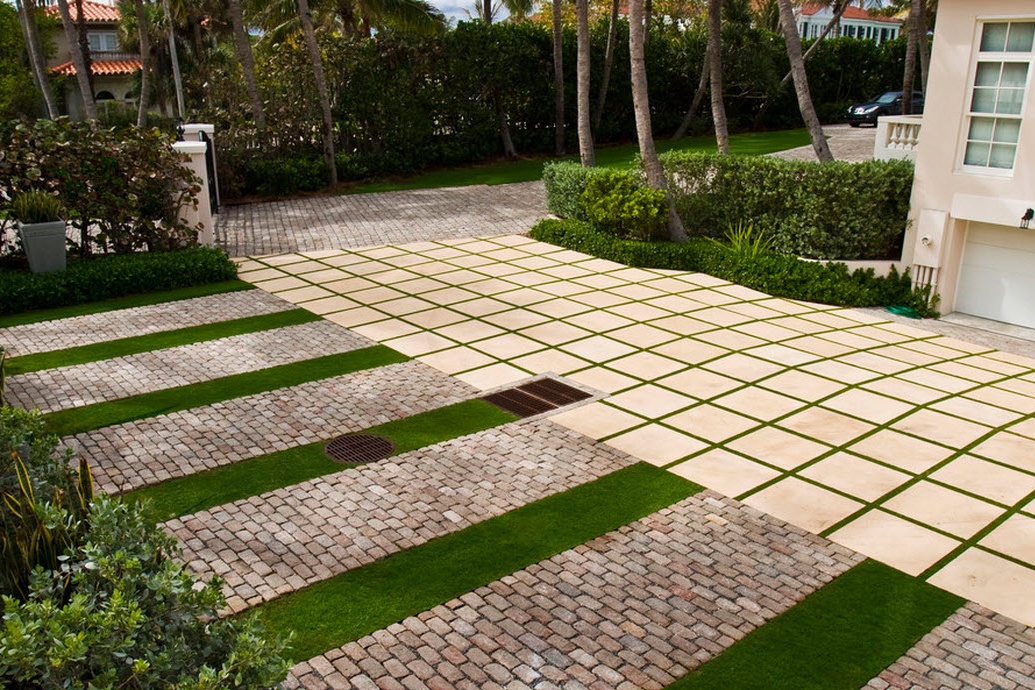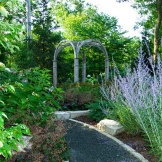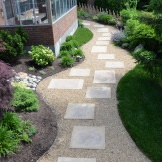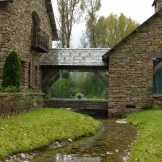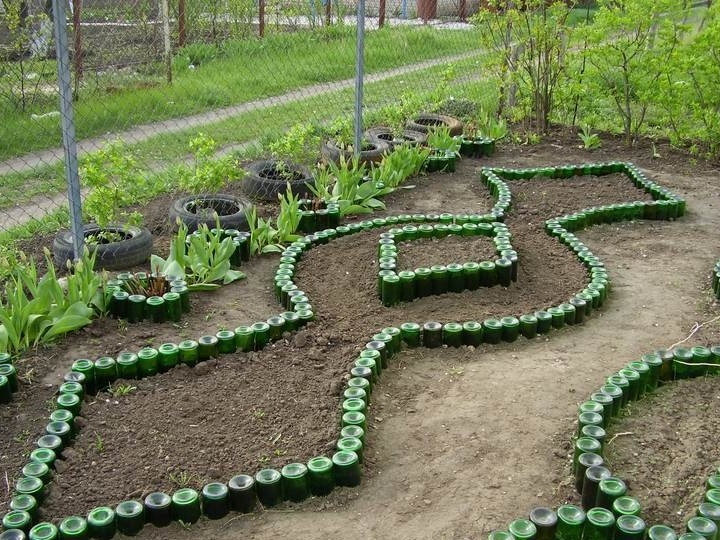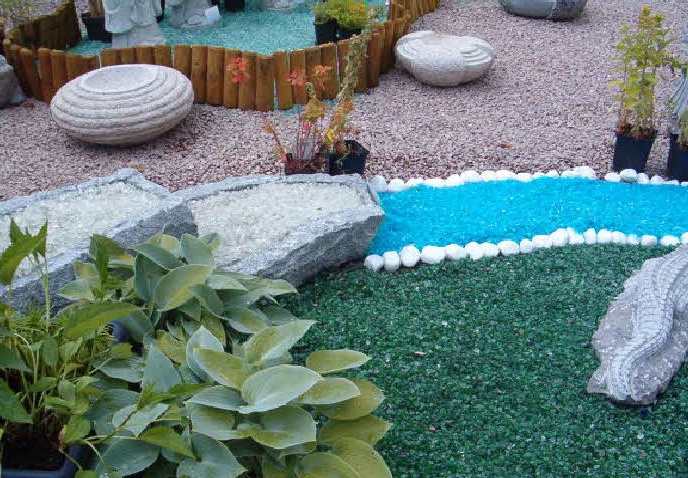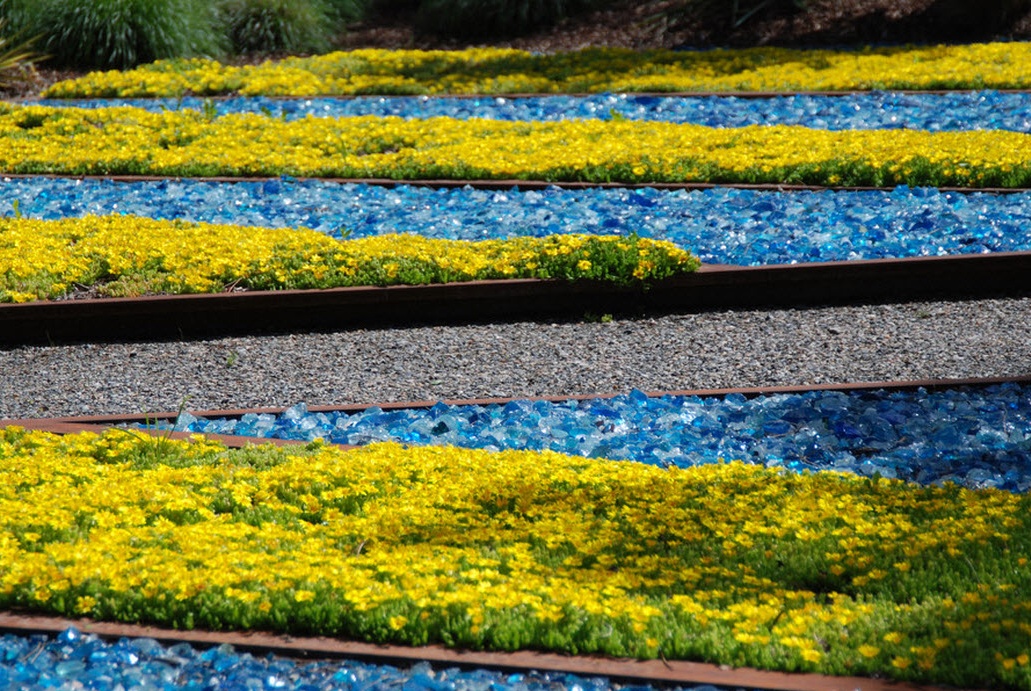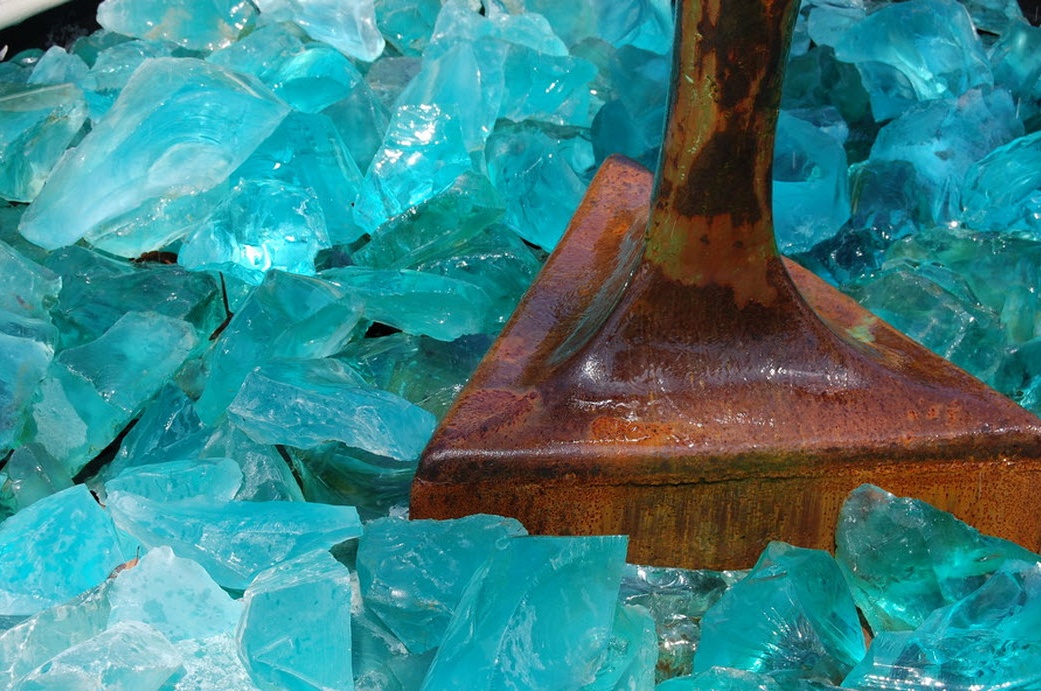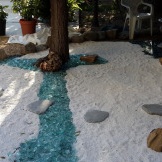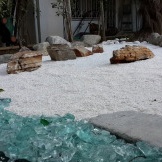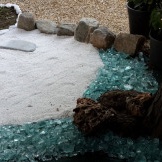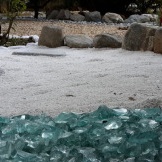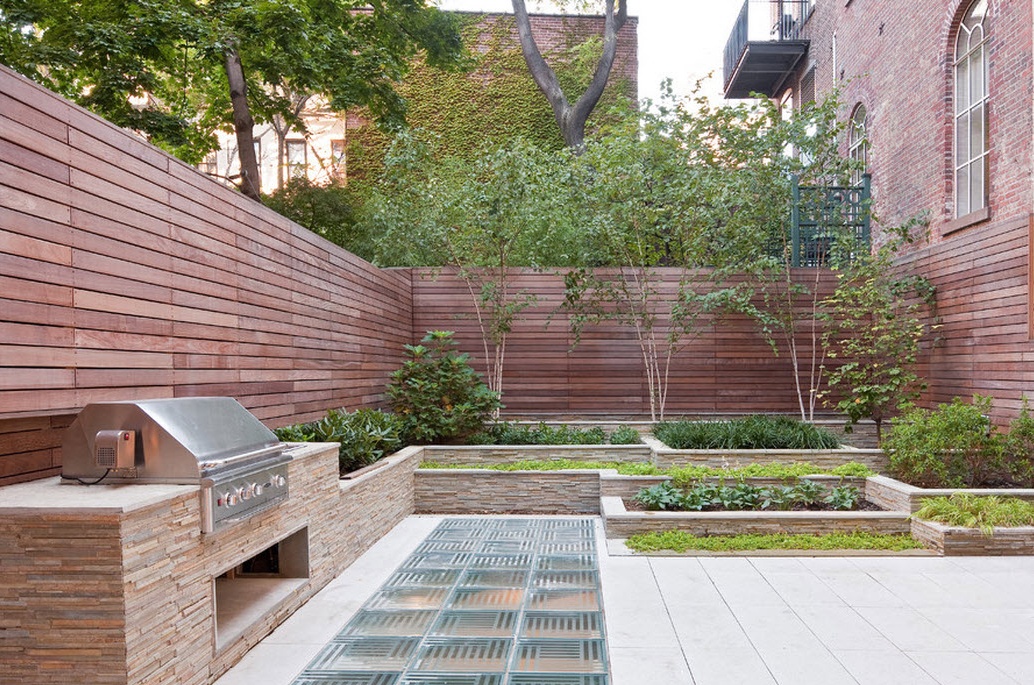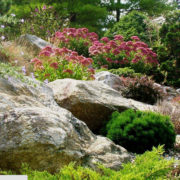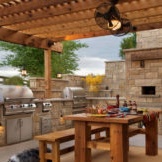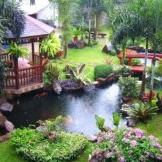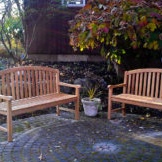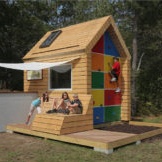Helpful invisibility or the use of glass in the arrangement of garden paths
The history of glass began six thousand years ago in ancient Egypt and, apparently, will continue indefinitely. Glass is used everywhere - it is in every house, every car, it is used in the manufacture of electronic devices, in laboratories, offices, shops. And, of course, a person with poor eyesight is forced to look at the world through the glasses. In other words, glass cannot be dispensed with. But if you go beyond the need, then the application of this unique material can be found even in the arrangement of garden paths. Here we can distinguish two fundamentally different approaches to the issue.
Concept “skilled summer resident”
This approach implies, above all, savings. That is, the path in the country is done, most likely, with your own hands from improvised materials. To this is added country savvy and its own design. The only glass material suitable for laying the track in this case is a bottle. More precisely, a lot of bottles. Where to get them - a task for the same country savvy, but how to make the path itself or lay out the original pattern, let's see.
First of all, you need to mark the future path or figure. Then, in its place, select the soil to a depth approximately corresponding to the height of the bottle. We install the bottles with the bottom toward the top, flush with the ground, filling the openings between them. Having established a couple of rows, you need to shed the cracks with water so that the earth settles, and add more. After a few good rains, the earth will sag even more, and then you can add sand on top. Of course, it is better not to drop heavy objects on such a track.
Concept “connoisseur of style”
This option implies the primacy of aesthetics. The financial side of the issue plays a secondary role. To date, the easiest way to create a beautiful glass path is to fill it with special glass gravel. This is not broken glass, but a material produced under industrial conditions, the granules of which do not have sharp edges and chips, that is, you can safely walk barefoot along such a path.
The cost of glass gravel is from $ 1 to $ 25 per kg. To fill the track with a length of 10 m and a width of 0.7 m, more than 200 kg of this material will be needed, there is no time for saving. But the effect can be amazing! With well-organized lighting on the site, a shining path will become the main decoration of the yard and garden.
A path made of glass gravel is made quickly and easily, just as it is made of gravel or other similar material. First, markup is carried out and the soil is removed to a depth of 10-15 cm. For the lower layer, it is convenient to use geotextiles. It will prevent the subsidence of gravel, the erosion of the path, will not allow weeds to germinate. Glass rubble is covered with a layer of about 2.5 cm over the geotextile. And the glass path is ready! A number of small stones of any shape that will harmonize with the surface and give it a complete look can serve as a border for such a design.
Larger glass rubble is most often used to decorate the garden and in combination with other materials.
In addition to these two ways to equip a glass walkway, there are others. With good financial opportunities, some design bureaus can offer you other options, up to the manufacture of custom-made special glass tiles for laying the track.

